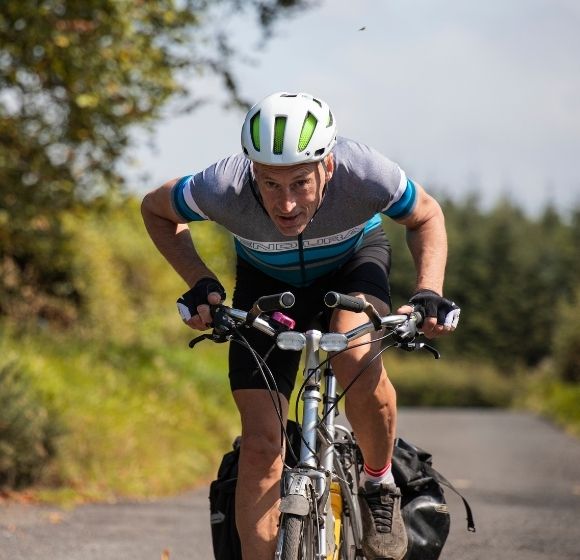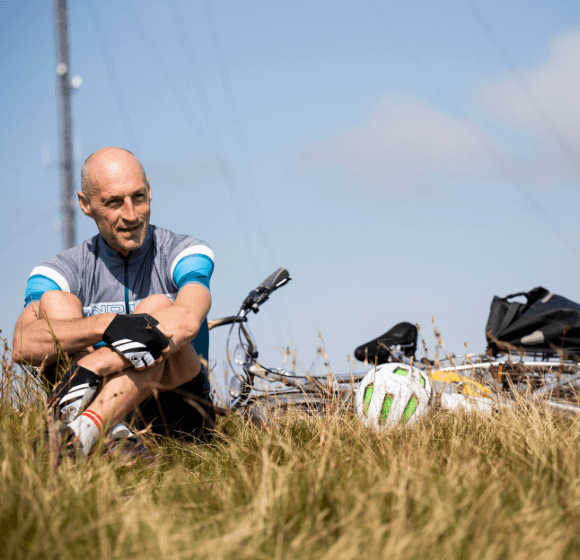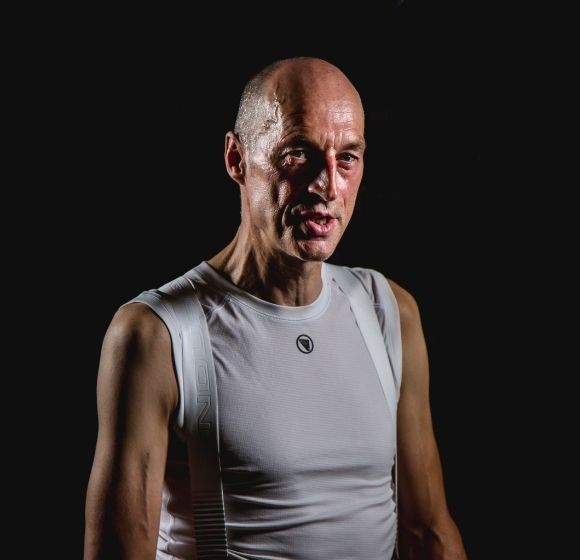
GRAEME OBREE
Defying Time
Early in our long discussion on cycling, philosophy, religion, rejecting an MBE and ethics, Hour Record breaker, design innovator and two-time Individual Pursuit World Champion Graeme Obree pauses.
“This isn't advice. I'd never give advice. I mean, if people don't like my ideas, there are another seven billion people on earth they can talk to. And the same goes for me. All I'm saying is I've worked things out for me, personally, and if there are some ideas people think sound interesting, great. But I'm not saying this works for everyone.” He could be speaking about his bike designs, rather than his perspective on life.
Obree is looking out the window of a supermarket cafe in Kilmarnock, scanning the car park. He's looking for the thing that inspired him – or provoked him – into finding his way in life. He's looking for a seagull. “Don't laugh, but I looked at a seagull one day and realised that it was completely taken up in the moment, in the here and now. Whatever had happened in the past didn't matter and it had no idea what could happen in the future, it was just there, concentrating on what it was doing. Nothing else.” Obree is a proponent of what has come to be known as mindfulness.
The phrases 'living in the moment' or 'being more present' have gained currency in recent years, but they were not popular expressions when Obree was growing up in 1970s Ayrshire. With hindsight, we might see where his love of time trials, individual track pursuit and his obsession with the World Hour record came from, racing that requires the rider to be immersed in the moment. As a rider Obree was able go deep into himself, find a place in a pain threshold few of us will ever experience, and stay there.
“Looking back, I couldn't do what I did then, with the philosophy I have now... My happiness was external to me, out of my control and I don't let that happen anymore.”
That's a place that Obree no longer needs to visit, but the forces which pushed him to his world titles and astonishing Hour Record rides have dissipated. He no longer feels the need to have his life and value judged on the basis of his performance “riding a bike around a wooden bowl.” Twenty five years after he won his world title as 1995 World Pursuit Champion in Bogota, Obree has unhitched his wagon from the feelings that pushed him to gold in the Velódromo Luis Carlos Galán.
“Looking back, I couldn't do what I did then, with the philosophy I have now,” reflects Obree. “I was so focused on winning, my sense of my worth was so tied up with riding faster than the other guy.” It was not an approach that Obree considers sustainable or even healthy. “In the end I came to realise that my happiness and sense of my own worth didn't actually come down to me or how fast I could ride – it came down to how fast the other rider could ride. If he was slower than me, I won, if he was faster than me, I lost and felt bad – so my feelings weren't even in my own hands! My happiness was external to me, out of my control and I don't let that happen anymore.”
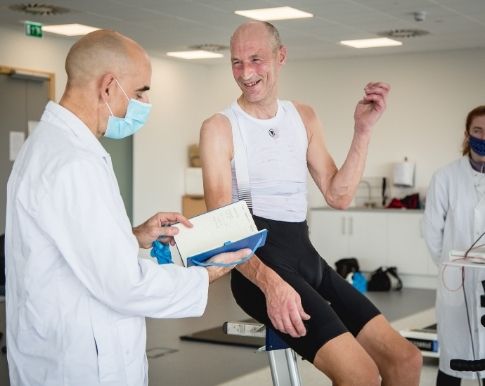
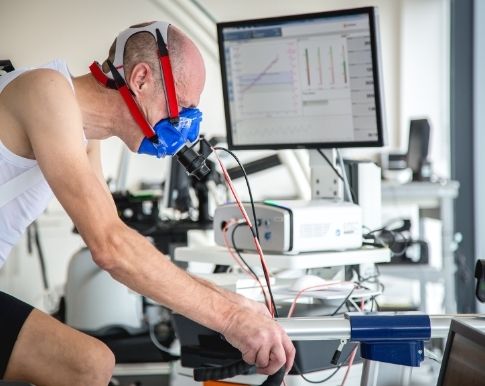
If medals and the opinions of others are no longer how he measures himself, there are still cycling moments and people whose estimation he values. His recollection of Italian legend Francesco Moser is one. “I met him at the Milan bike show and he invited me to train with him the next day and we rode on the velodrome together. We weren't hanging about because he was training for a new Hour Record and when we finished, I felt a respect between me and someone I considered my track peer, we had gone head-to-head and pushed each other.” Considering that the young Obree had been inspired by Moser, actually pacing the Italian, giving as good as he got - “and maybe then some” - remains a cherished memory, an unspoken mutual recognition he could value, and still does.
A year after Obree riding with Moser, he would be racing 8,000 feet up in Bogota against another Italian, Andrea Collinelli, for the world pursuit title. Obree managed his efforts through the qualifying rides to meet up with the Italian in the final. “I had held a little bit back in earlier rounds and had a bit more time to recover than Collinelli, like another 15 minutes, and I noticed he needed oxygen after his semi-final. I was gasping too after my ride, but I didn't need oxygen and I knew I had him.”
Obree might have seen Collinelli's oxygen mask as a sign of weakness, but it was a close run thing in the final, with just over a second in it. “For me it was all or nothing. At high altitude in Colombia it was hard, but I felt like I was ready to die trying, I was ready to go to the edge, to look into the abyss.” The language is extreme and a tad theatrical, but even today there should be no doubt that Obree was willing to push himself far beyond what anyone would consider normal, his voice still carries scary conviction when he recalls his 1995 attitude.
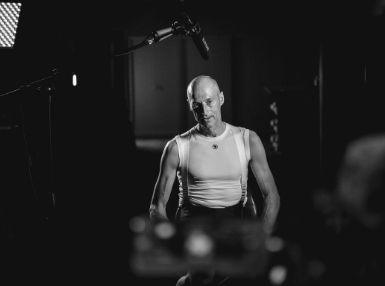
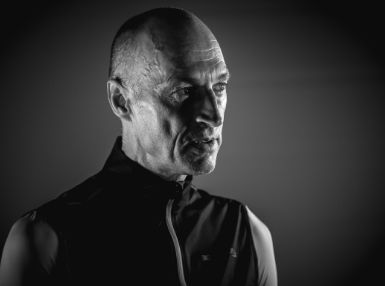
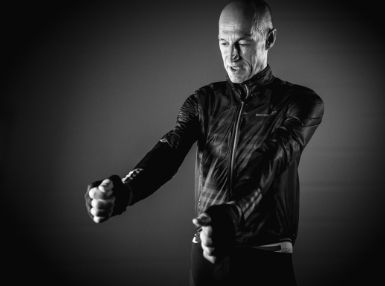
The following year Obree represented Great Britain at the Atlanta Olympics, where the rest of the world had adopted his stretched-out 'Superman' position. Additionally, some had added blood doping to their preparation and Obree decided he had gone as far as he was willing to go. The man he had beaten in Bogota, Andrea Collinelli won gold in Atlanta, but the Italian didn't get to defend his Olympic title in Sydney, failing a dope test for 'painkillers and steroids.'
“What I now understand is that I have worth, a worth I was born with, that everyone else is born with something that can't be taken away and doesn't depend on anyone or anything else.”
A questioning spirit like Obree was never going to thrive in the brutal world of professional cycling – whether on track or road and he effectively quit racing in 1997. “I came back and won the British 10 mile time trial championship in a UCI authorised riding position, just to prove that I could win, but that was it, that was the last competition I rode,” smiles Obree, his personal 'contract' with competitive cycling fulfilled.
From which point his life was filled with writing books, film adaptations, land speed record attempts, public speaking and well-publicised struggles with mental health issues. Now long out of a lithium fog, Obree sums up his philosophy thus: “My worth is not dependent on anyone or anything else, which it was for my whole cycling career, now I live my life not to harm, hurt or neglect anyone, particularly those close to me, and including myself. There were too many times in my past where I found myself doing things because I thought I 'ought to' and that doesn't happen anymore. When I was racing I was so caught up in measuring my worth by factors external to me and I think a lot of people do that in their lives, not just pro athletes. What I now understand is that I have worth, a worth I was born with, that everyone else is born with something that can't be taken away and doesn't depend on anyone or anything else.”
Obree insists he hasn't withdrawn from the world, noting that “we are the only species that can be unhappy tomorrow with what pleases us today. Take your dog to the park, throw a stick, he's delighted. Do it tomorrow, he'll still be happy. Us? We seem to be conditioned to keep wanting more new stuff and I don't think that's healthy. If you are happy today, with the things you have, why would you be unhappy tomorrow?” Thought provoking as ever, still asking awkward questions, Graeme Obree.
In a post-Covid-19 world we may not have much in common with Graeme Obree, but we can all learn something from his story.
© 2021 ENDURA
